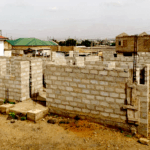Ghana’s Community-based Health Planning and Services (CHPS) compounds are poised to become frontline hubs for noncommunicable disease (NCD) detection through the strategic deployment of mobile telemedicine diagnostics under the MahamaCare framework. In a policy memorandum addressed to the Minister of Health, Honourable Kwabena Mintah Akandoh, Atitso Akpalu and fellow stakeholders called for immediate action to equip every CHPS compound with portable laboratories and AI-assisted assessment tools, capitalizing on the nation’s extensive community-care network to bring screening and specialist consultation directly to underserved populations.
Noncommunicable diseases, ranging from diabetes and hypertension to chronic kidney and liver conditions, now account for over 45 percent of Ghana’s mortality burden, with age-standardized death rates reaching 750 per 100,000 among men and 563 per 100,000 among women.
These figures underscore a critical gap in early detection, as CHPS compounds currently lack the capacity to screen for these “silent killers” and refer patients before complications arise. Rural Ghanaians frequently face prohibitive costs and logistical hurdles when traveling to regional hospitals, leading to delayed diagnoses and poorer outcomes.
Akpalu’s memorandum emphasizes the strategic advantage of integrating mobile diagnostic devices developed by Dawn Vision Technologies. These units feature real-time imaging, point-of-care laboratory testing for key NCD markers, AI-driven clinical assessments, and encrypted tele-consultations with urban specialists.
Designed to operate on solar power and withstand Ghana’s diverse terrain, the devices promise to empower Community Health Officers with diagnostic confidence and streamline patient referrals while maintaining secure, cloud-based health records for continuity of care and epidemiological monitoring.

The proposed implementation strategy envisions a phased rollout, beginning with pilot deployments in 100 CHPS zones located in districts with high NCD prevalence. Over a four-year horizon, a full national scale-up would extend these capabilities to more than 2,000 CHPS compounds. Concurrent training workshops and virtual coaching sessions would ready
Community Health Officers to interpret AI-assisted results, engage in remote case discussions, and manage follow-up protocols. Key performance indicators such as the increase in early NCD diagnoses, reduction in hospital referrals, and patient satisfaction rates would guide ongoing optimization and ensure accountability.
This telemedicine initiative aligns directly with Ghana’s National NCD Strategy, the World Health Organization’s Package of Essential Noncommunicable Disease Interventions (PEN), and Sustainable Development Goal target 3.4, which calls for a one-third reduction in premature NCD mortality by 2030.
By embedding diagnostic technology at the community level, MahamaCare seeks not only to enhance individual patient outcomes but also to strengthen national surveillance, enabling health authorities to deploy resources more efficiently and detect emerging trends in real time.
Beyond the technical and clinical benefits, the memorandum frames the integration of telemedicine as an investment in equity and public trust. Akpalu argues that real-time diagnostics at CHPS compounds will reduce the moral hazard of health facilities billing the National Health Insurance Scheme for unavailable medicines; a systemic inefficiency that the new platforms can mitigate through transparent inventory tracking and referral verification. In his words, “These devices are portable, solar-compatible, and designed for deployment in Ghana’s rural terrain,” underscoring the pragmatic and scalable nature of the solution.
For MahamaCare to transition from proposal to practice, the Ministry of Health must fast-track ministerial endorsement, allocate budgetary resources, and formalize procurement

agreements with Dawn Vision Technologies. Regulatory updates will be required to authorize remote diagnostics, tele-consultations, and AI-supported decision-making, alongside robust data-privacy safeguards. With coordinated public–private collaboration and support from development partners, Ghana can seize this moment to redefine primary care delivery, bridging the diagnostic divide and saving thousands of lives through early NCD detection and intervention.



